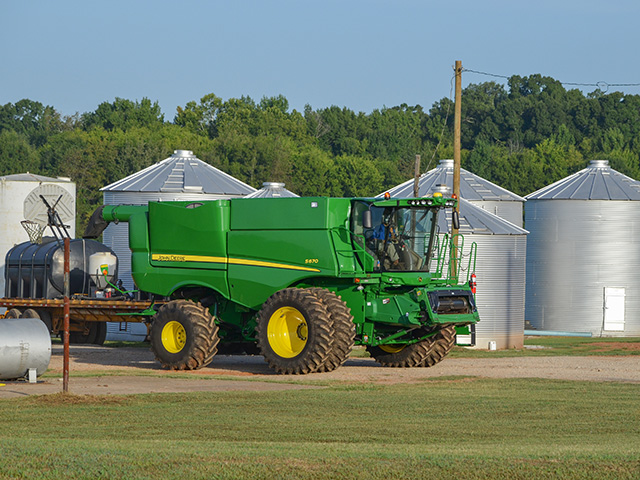Rural Voters Go for Trump
DTN/PF Poll Shows Trump Has Rural Lead, But Many Said Ag Is Worse Off Than Four Years Ago
President Donald Trump finds strong support in rural America with the presidential race nearly ended. A DTN/Progressive Farmer Zogby Analytics Election poll found 50% of rural adults intend to vote for Trump as president on Nov. 3 -- that's a lead of 18 percentage points over Democratic presidential nominee Joe Biden.
Brenda Frketich, who farms near Woodburn, Oregon, is highly active in agricultural state politics. She is a strong supporter of President Trump. "I appreciate his emphasis and appreciation for farmers," she said. "I appreciate his emphasis on streamlining regulations, rolling back WOTUS (waters of the United States regulations) and including us in the conversation. I doubt we'd have that (seat at the table) with Biden."
Rural voters also favor Republicans over Democrats in congressional races. Forty-nine percent of rural residents said they will vote for Republicans in congressional races. Thirty-one percent favor Democratic candidates.
FEEDBACK ON PRESIDENT'S PERFORMANCE
The survey does show indecision and dissatisfaction in rural America. Eleven percent of rural adults are undecided about their choice for president. Forty-two percent of rural residents and farmers strongly or somewhat disapprove of the president's job performance.
P[L1] D[0x0] M[300x250] OOP[F] ADUNIT[] T[]
P.J. Haynie will vote for Biden. "The primary reason," Haynie said, "is the markets when Joe Biden left office (as vice president). "Beans were $12, corn $4.50. The markets were better."
Trade is an issue that lands Haynie in the Biden camp. "Other countries don't take us seriously under (Trump's) leadership. (Biden) has been there. He knows how to get us back." Haynie farms near Reedville, Virginia and is chairman of the board with the National Black Farmers Council.
As does Haynie, rural adults have concerns about the state of American agriculture. The Virginia farmer sees disparity in USDA programs that don't adequately target minority farmers, for example.
BETTER OR WORSE OFF?
More farmers also believe that U.S. agriculture is worse off (39%) than better off (23%) than it was four years ago. Sixty-seven percent of Democrats said it's is worse off than four years ago. Republicans are more positive about the state of agriculture (40% think that it is better off than four years ago), as are Southerners (29% said it is better). But 17% are undecided.
The number of farmers with no profits to spend this year (21%) is similar to the number (18%) observed in a 2016 Zogby Poll commissioned by DTN/Progressive Farmer. Fifty-four percent strongly/somewhat agree that farming and ranching has been a profitable business over the past four years. But 42% would somewhat/strongly disagree.
"There have been some troubling times," said Ryan Bivens, a first-generation farmer growing corn, soybeans and wheat near Hodgenville, Kentucky. "We knew we were going to take a hit" as a result of the U.S.-China trade dispute. The Market Facilitation Program (MFP) helped offset some of that trade-related damage. Bivens is hanging with Trump. "Biden/Harris just scare me," he said. "(Kamala) Harris is from California and she's pretty uneducated about modern agriculture. Trump does stand up for us. He has very much proved he is supportive of agriculture."
HOW SURVEY WAS DONE
The Zogby DTN/Progressive Farmer survey included 1,008 adults living in rural counties and 120 completed surveys from the Progressive Farmer subscriber list. The margin of error is plus/minus 2.9 percentage points. This is the fourth election-year poll, going back to 2012, that Progressive Farmer has conducted with Zogby.
Twenty-nine percent of respondents farm or have members of their families who farm. Forty percent identify as Republicans, 23% as Democrats and 36% as Independents. The majority of respondents are under 54 years old; 80% are white and 11% are Hispanic. Fifty-five percent are married. Respondents are evenly split between male and female. Responses came most frequently from the Great Lakes region -- 37% of the total -- from the South (27%) and from the West (22%).
Dan Miller can be reached at dan.miller@dtn.com
Follow him on Twitter @DMillerPF
(c) Copyright 2020 DTN, LLC. All rights reserved.




